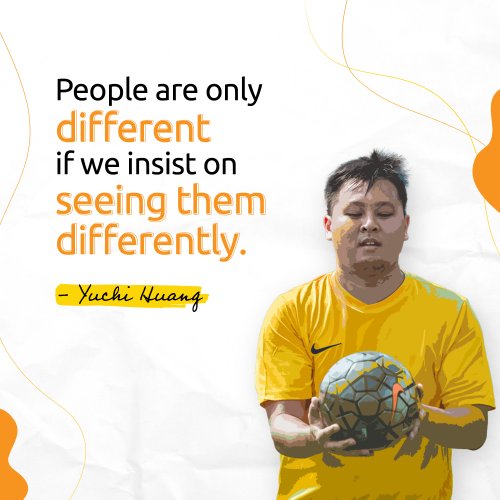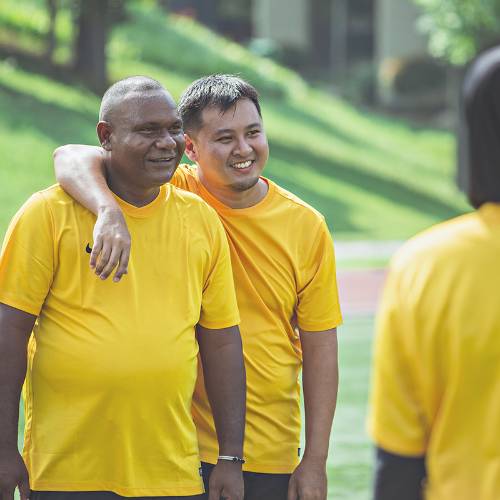As a Special Olympics coach working closely with athletes with intellectual disabilities (ID) in Singapore, my role goes beyond the playing field and training our athletes. My peers and I also serve as facilitators and pillars of support. We strive to find meaning in what we do, in building up our people and creating a strong and tighter community.
I have seen first-hand the impact that COVID-19 has had on our athletes. Training and competitions came to a grinding halt, and many of our athletes experienced a drop in their sporting skills, fitness levels, as well as physical and mental well-being.
Thankfully, restrictions have since eased, but there’s still much that needs to be done as we rebuild. Putting our athletes first in our outreach programmes and competitions, reconnecting with volunteers who have halted their activities, recruiting new volunteers and coaches, engaging with schools and the wider special needs community, remains work that needs to be continually done.

Whenever I’m asked what the differences are between Special Olympics athletes and others, my answer remains consistent – that they are different only if we insist on seeing them differently. We utilize the same coaching techniques, ensuring all players understand our instructions and receive them in the right spirit and positive mindset, with the understanding that everyone is a valuable team member, with an equal opportunity to play.
If you’re curious about volunteering with communities that have intellectual disabilities, I fully encourage you to give it a try.
My advice would be to start off slow initially. Give yourself the time and space to experience the joys of volunteering. Get to know the athletes, build relationships, and over time start to volunteer on a more regular and committed basis.
Witnessing our athletes’ achievements & accomplishments can be truly amazing and inspiring. This was something I experienced first-hand at the recent Unified Cup in Detroit. An athlete came up to me after a match and told me that it was his very first time completing a full 60-minute football game, and it meant the world to him to have completed this athletic milestone.

As volunteers, we get to nurture, guide and mentor athletes in finding their place in society. Seeing the growth and maturity that my athletes have displayed over the years has indeed been a wonderful experience. If each and every one of us can take one small step and spend a bit of our time volunteering, our collective effort can make a genuine difference towards true inclusion in our society.
To know more, follow @humanraceasia and @soasiapacific.











